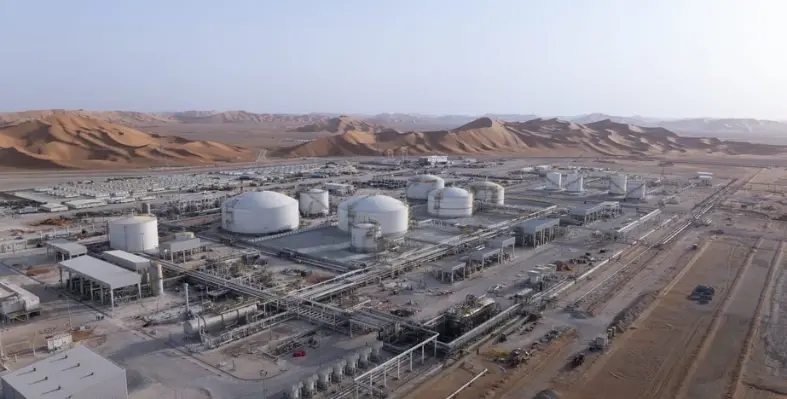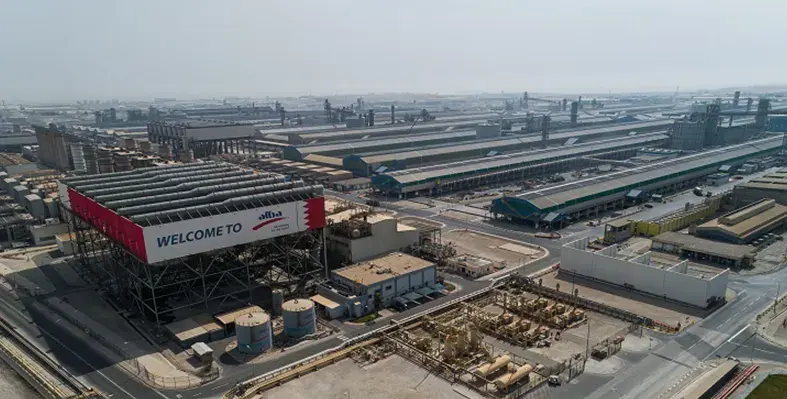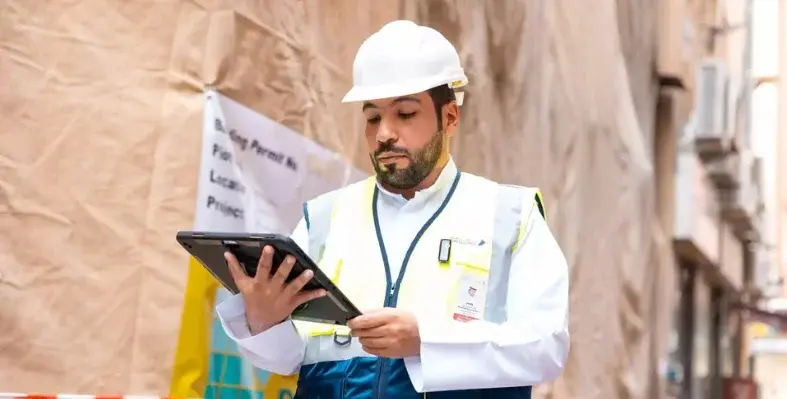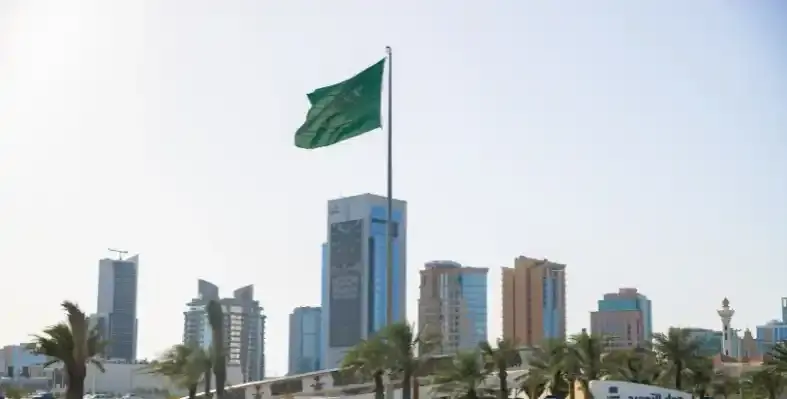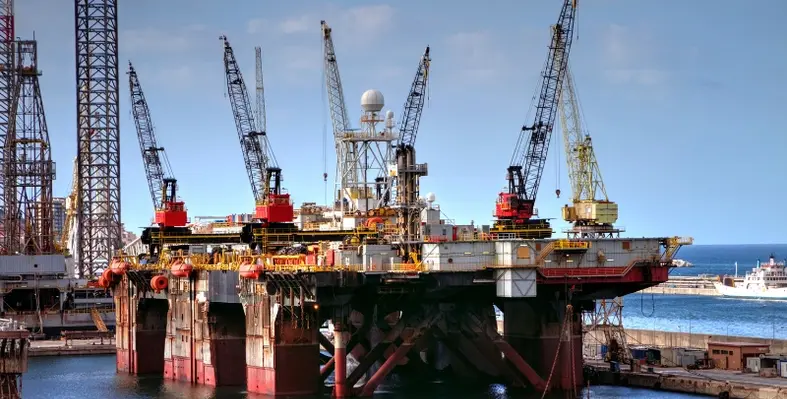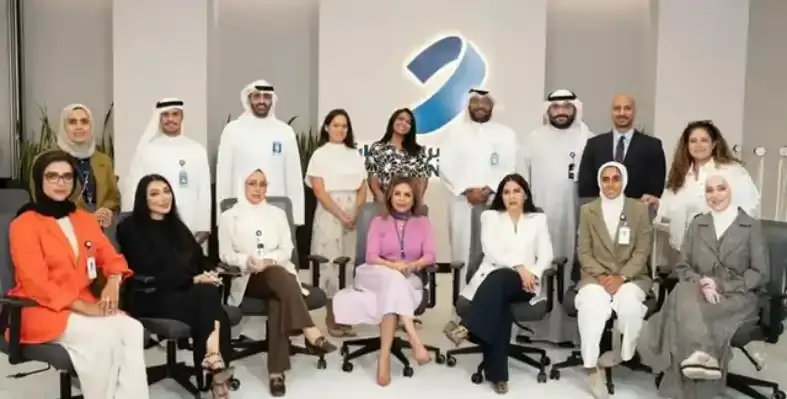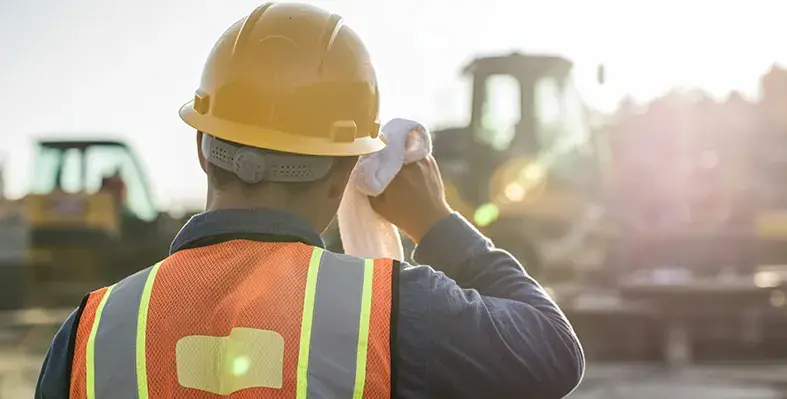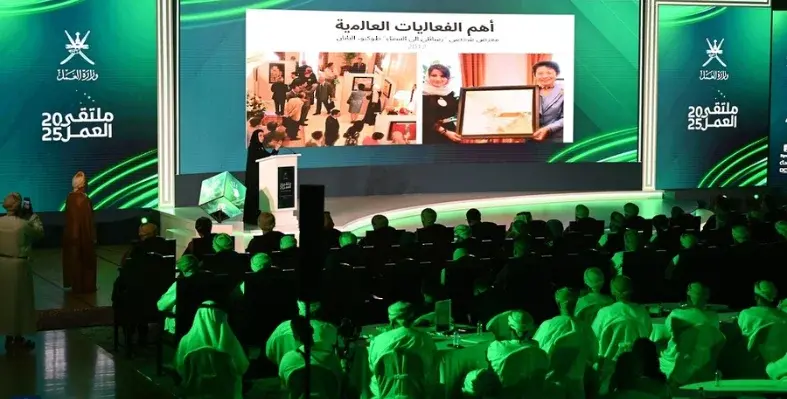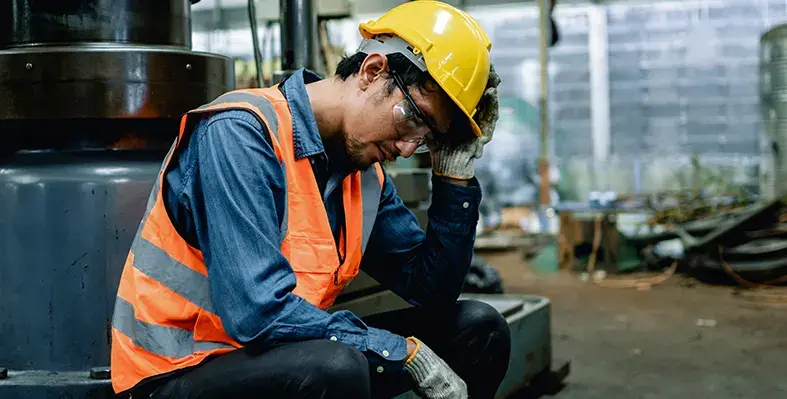Middle East
Middle East
- Date: 28 August, 2025
- Year: 2025
OQ Exploration and Production (OQEP) has successfully commissioned the Bisat-C Expansion Facilities in Block 60, raising total oil processing capacity to 67,000 barrels per day, according to the Oman News Agency.
The project, described as a major milestone in OQEP’s upstream growth strategy, was delivered in record time, from contract award in January 2024 to first crude in less than 18 months. The early completion reflects what the company called “high levels of coordination, planning, and technical execution.”
The expansion enables an additional gross fluids handling capacity of 447,000 barrels per day, including 37,000 bpd of oil and 410,000 bpd of Produced Water treatment. OQEP said this strengthens the maturation of production growth from its flagship Block 60 asset.
Health, Safety, and Environment (HSE) standards were a central pillar of the project’s delivery. At its peak, Bisat-C hosted 1,200 personnel, achieving three million safe man-hours without a single Lost Time Injury (LTI). The project also recorded two million kilometres driven without any Road Traffic Accidents (RTA), underscoring OQEP’s commitment to safe operations.
Oman’s localisation agenda also benefited from the development. OQEP reported an In-Country Value (ICV) spend of RO 24.6mn directed to SMEs, Made in Oman goods, and local service providers. In addition, 23 Omani graduates were trained and employed through the project.
On the technical side, the expansion required 486 piles (each 12 metres deep) to support new tanks and processing infrastructure. The Produced Water tank, the largest installed, has a storage capacity of 27,784 cubic metres (174,700 barrels). Other key units include a Gas Flotation Tank (15 metres high), a Gross Inlet Separator weighing 145 tonnes, and a Heater Treater and Desalter package with a combined capacity of 40,400 bpd.
OQEP added that the new water injection pumps, powered by a 4 MW system, will enhance reservoir management by re-injecting 1,130 cubic metres per hour at 90 Barg.
- Topic: ESG
- Region: Middle East
- Date: 25 August 2025
- Year: 2025
Aluminium Bahrain (Alba) has signed an MoU with Bahrain Center for Strategic, International and Energy Studies (Derasat) to advance Environmental, Social and Governance (ESG) initiatives in support of Bahrain’s sustainability goals
The MoU covers co-operation to enhance energy efficiency, reduce carbon emissions, and balance economic and environmental priorities. Key initiatives include a specialised research study to identify the optimal energy mix for Alba’s operations, and the development of a unified ESG framework. A joint task force of experts from both organisations will lead these efforts. This collaboration, aligned with Bahrain’s net-zero 2060 commitment reinforces the value of strategic partnerships in driving sustainable industrial growth, advancing research, and delivering long-term benefits to the local community.
Alba’s CEO Ali Al Baqali stated, “This MoU with Derasat is a testament to Alba’s unwavering commitment to sustainability and innovation. By combining our industrial expertise with Derasat’s research capabilities, we are laying the groundwork for transformative ESG initiatives that will not only benefit Alba but also contribute to Bahrain’s national goals. Together, we aim to pioneer solutions in renewable energy and carbon reduction that are both economically viable and environmentally responsible.”
Bahrain Center for Strategic, International and Energy Studies (Derasat)’s chief executive officer, Abdulla Mohamed Alahmed, added, "This memorandum reflects our shared vision to strengthen research partnerships in energy and sustainability. Through advanced mathematical modelling and scenario analysis conducted by our Artificial Intelligence and Renewable Energy Lab (AIRE Lab), we aim to deliver practical, data-driven solutions that support Bahrain’s long-term economic competitiveness and environmental goals.”
Since its inception, Alba has invested in numerous environment, sustainable and socio-economic development projects that have had a positive impact on society, launching a comprehensive ESG roadmap with six target areas in 2022. Alba’s recent projects such as the first-of-its-kind US$37.5 million zero-waste Spent Pot Lining Treatment Plant, the Power Station 5 Block 4 Project, and the upcoming +6 MW Solar Farm Project align with the goals of Bahrain’s Economic Vision 2030 as well as the Kingdom’s Net Zero Carbon targets. In May 2024 Alba launched EternAl, its low carbon aluminium product line with two initial variants: EternAl-30 and EternAl-15 with a 30% and 15% recycled content, respectively. This advances its commitment to a circular economy and secondary aluminium, while addressing the growing global demand for low carbon aluminium.
Alba has been recognised for its initiatives to produce aluminium responsibly through awards such as Top ESG performer in Bahrain by ESG Invest, Safeguard Label from Bureau Veritas and Best Corporate Governance Award by Ethical Boardroom.
- Topic: HSE
- Region: Middle East
- Date: 20 August 2025
- Year: 2025
Compliance rates reached 96% across the Dubai Municipality's 25,000 site inspections in the first half of 2025
That figure represents a 36% increase against H1 2024, with over 18,800 construction sites inspected.
1,669 completion certificates were issued, up 30% on 2024. Those permits represented around two million square metres of residential, commercial and industrial space.
CEO of the Dubai Municipality's buildings regulation and permits agency, Eng. Maryam Al Muhairi, said the organisation "places great emphasis on precise engineering oversight of construction activities, considering it a key tool to regulate the sector and elevate its standards, in line with our unwavering commitment to developing it into the world’s smartest and most sustainable.
"Today, Dubai is not just a rapidly developing city — it is a global platform offering a sustainable model for future urban development. We remain committed to pursuing this ambitious vision, working hand in hand with our partners in the construction sector to drive sustainability, excellence, and innovation."
- Topic: Fire Safety
- Region: Middle East
- Date: 20 August 2025
- Year: 2025
Oman-based Tenable Fire Engineering Consultancy (FEC) has appointed Sam Alcock as chief executive officer, as it targets 30% growth this year
Alcock joined the specialist fire and life safety consultancy in 2011 as a fire consultant and was appointed Dubai director in 2016. He has been instrumental in positioning Tenable FEC as a trusted fire engineering partner across the GCC and internationally, expanding the consultancy’s footprint in the UAE, Saudi Arabia, Africa and India while maintaining strong profitability and client relationships. In his new role he will have a strong focus on scaling operations in existing markets and developing new regional and international opportunities.
In 2024, Tenable FEC recorded a 25% increase in revenue, delivering over 540 projects valued at US$6mn, spanning mixed-use and hospitality developments and pre- and post-contract fire engineering services for high-end projects such as those along the Dubai Water Canal. So far in 2025, the consultancy has been awarded projects worth US$4.2mn. With Tenable FEC now Salamah-approved in Saudi Arabia and the local office fully operational, the consultancy is targeting 30% growth this year, driven by large-scale infrastructure and masterplanning projects.
Alcock said, “It’s a privilege to be awarded the role of CEO at such a pivotal time for the business. Our team has built a strong foundation for growth and I look forward to continuing this momentum. My focus will be on expanding our capabilities, enhancing service delivery and strengthening our reputation as a leader in fire and life safety consultancy.”
Founded in Oman in 2010, Tenable Fire Engineering Consultancy provides a comprehensive range of high-quality, fire and life safety services, including code consulting, fire system design, performance-based fire design and third-party verification within the built environment. With offices in Muscat, Dubai, Saudi Arabia, Malaysia and London, the company executes regional and international projects of any size in the Middle East, Europe, Africa and Asia. The team approach projects with leading talent and innovative technologies while adhering to international best practices, design codes and standards.
- Topic: HSE
- Region: Middle East
- Date: August 18th
- Year: 2025
The Saudi Gazette has reported several health and safety regulation changes to group housing height, space, location, and noise levels amongst other criteria
Saudi's Ministry of Municipalities and Housing deems housing units with capacity between 500 and 10,000 people as 'group housing', with residential buildings capped at 500.
Reports suggest the new regulation will require a dedicated operational supervisor at each group residential facility, bedrooms constructed at least four square meters per person occupying it, and two kitchens, toilets and bathrooms per eight residents.
One parking space must now be included per 100 residents at each residential project.
No more than 40% of the site's land plot can be developed moving forward.
Boundary walls on commercial streets, barriers above fences, and air-conditioning units or satellite dishes on balconies have reportedly all been prohibited under the new regulation.
- Date: 18 August, 2025
- Year: 2025
Expro has completed the world’s first fully remote five-plug cementing operation in Saudi Arabia, a breakthrough that places safety at the forefront of well construction practices.
The operation used Expro’s Generation-X Remote Plug Launcher (RPL) and SkyHook cement-line make-up device, allowing a multi-stage cementing job to be carried out with no red-zone entry or man-riding activities. By removing workers from high-risk areas, the system significantly reduced exposure to hazards while maintaining precise operational control.
The achievement builds on Expro’s first cementing job in the Kingdom earlier this year, highlighting a fast ramp-up in regional capability. In May, the company applied the technology on a high-pressure gas well with a 9-5/8” casing run, which is the longest of its type in the field. All five plugs were loaded in a controlled environment and remotely launched at the well site, streamlining the process and improving well integrity.
Expro reports that the technology not only reduces rig time but also enhances safety and consistency. In another deployment, it enabled cement displacement through the top drive at up to 13 bpm, producing cleaner wellbores and cutting static wellbore time.
With these results, Expro is reinforcing its commitment to safer and more efficient operations in Saudi Arabia and beyond. The company sees its remote cementing systems as a step towards industry-wide adoption of automated solutions designed to protect people while improving performance in challenging environments.
Jeremy Angelle, vice president of well construction at Expro, said, “Our entry into Saudi Arabia is more than just geographic expansion - it’s about transforming cementing operations through advanced engineering. This breakthrough showcases our Generation-X and SkyHook technologies as world-class innovations that drive measurable safety and efficiency gains.
“Both the Generation-X™ launcher and SkyHook™ system were designed with safety, control, and field adaptability in mind,” added Angelle. “To see them deliver such strong results in a new region is a proud moment, and a signal of what’s possible as we grow our well construction capabilities globally.”
- Topic: HSE
- Region: Middle East
- Date: 15 August 2025
- Year: 2025
Dubai Municipality has carried out more than 25,000 field inspections relating to construction activity in the first half of 2025 – a 36% increase compared to the same period in 2024
The inspections covered over 18,800 buildings under construction, with a total built-up area exceeding 36mn square metres
Compliance rates reached 96%, reflecting the Municipality’s ongoing efforts to safeguard building standards and maintain sustainable urban planning practices, ensuring safety and quality throughout all stages of construction. The approach supports Dubai’s vision to be the world’s smartest and most sustainable city in the construction sector, while reinforcing the emirate’s reputation as an investment-friendly hub with advanced infrastructure and flexible, integrated regulations.
Eng. Maryam Al Muhairi, CEO of the Buildings Regulation and Permits Agency at Dubai Municipality, said, “Dubai Municipality places great emphasis on precise engineering oversight of construction activities, considering it a key tool to regulate the sector and elevate its standards, in line with our unwavering commitment to developing it into the world’s smartest and most sustainable. We aim to provide a safe and sustainable construction environment, applying the highest quality and safety standards at all stages, which contribute to enhancing residents’ quality of life and reinforcing Dubai’s position as a leading hub in construction and building.”
The Municipality oversaw the use of more than 1.5 million cubic metres of green concrete, ensuring compliance with environmental standards. Additionally, 16.4 million cubic metres of soil were recycled and transported. The Municipality issued 4,222 permits for sand transport and supply, ensuring optimal resource use, and approved over 1,126 requests for free sand to support Emirati citizens building private villas.
These initiatives form part of Dubai’s broader vision for an innovative and sustainable construction sector, streamlining building procedures, enhancing governance, and ensuring legislative and regulatory flexibility.
- Topic: HSE
- Region: Middle East
- Date: August 12th
- Year: 2025
The inaugural EMotional Aid workshop saw Burgan Bank partner with Anara and Dr. Kim Dillen, PhD, a neuropsychologist, to empower senior staff with the skills to turn them into emotional wellness champions in the workplace.
Zahra Boarki, the bank's senior manager of internal communication, said the workshop "extends [the bank's] ongoing commitment to instilling mental health as a fundamental pillar of its corporate work culture". Prioritizing our employees’ health and safety stems from our belief that a balanced environment is a catalyst for growth and creativity.
"We are committed to maintaining a robust series of internal events and activities that seek to enrich all aspects of our employees’ lives, bolstering their physical and mental wellbeing at all times."
Graduates from the workshop become emotional wellness champions, allowing them to better cater to their team's personal wellness needs and professional support requests.
- Topic: HSE
- Region: Middle East
- Date: 6 August 2025
- Year: 2025
Aqil Abdul Ali Bu Hussain, Assistant Undersecretary for Labor Relations at Bahrain’s Ministry of Labor, has confirmed 99.96% compliance to date with the midday work ban
In common with its Gulf neighbours, Bahrain prohibits outdoor work at the hottest time of day in the summer months – in Bahrain’s case from 12 to 4pm from 15 June to 15 September – to protect workers from the dangers of heat stress. Violators are subject to imprisonment for up to three months and fines ranging from BD500 to BD1,000, or either penalty. The ministry has also opened a hotline for members of the public to report any violations observed during the midday work ban period.
The Assistant Undersecretary attributed the high level of compliance to the effective partnership between the Ministry and employers in ensuring a safe and healthy work environment, and embodies the Kingdom of Bahrain's commitment to international labour standards ensuring the rights and safety of workers. Prior to the ban taking effect, the Ministry held awareness workshops with occupational safety officers and supervisors from private sector establishments, and published educational materials through its online platforms to inform workers about the risks of heat stress and midday sun exposure.
The Assistant Undersecretary said that the Ministry’s inspection team identified just six violations during the two months following the midday work ban taking effect, affecting 12 workers, after the team carried out 17,605 inspection visits. He praised the level of awareness among employers and workers of the importance of adhering to the decision, which contributes to protecting workers from summer risks and diseases, and raising work efficiency and productivity. He also stressed that the Ministry continues to enhance its advice through its electronic platforms regarding the danger of heat stress and exposure to direct sunlight at noon, to improve occupational health and safety in workplaces.
The Assistant Undersecretary pointed out that the Kingdom of Bahrain continues to implement best practices and occupational health and safety requirements to protect workers from occupational injuries during this time of high temperatures and humidity.
- Date: 6 August, 2025
- Year: 2025
From the meeting room to the factory floor – and from the office to the construction site – the uvex 1 x-cite women’s safety footwear range offers the ideal blend of style, comfort, and protection.
Designed for professionals who move between multiple environments without wanting to sacrifice fashion or safety, the new S3L models come in three sleek options: a low-cut shoe, a Chelsea boot, and a lace-up boot. Each is designed to complement business wear while meeting the demands of more hazardous settings.
Engineered for performance, the shoes feature a slip-resistant PU outsole, a lightweight carbon toe cap for a slim silhouette, and a clean design with minimal seams to reduce pressure points.
Hydrophobic leather and breathable textile lining ensure all-day comfort, while the ESD-certified, metal-free build includes a removable, antistatic comfort insole.
Sustainability is also central to the design, with recycled materials incorporated into the penetration-resistant midsole and insole.
Having already won the German Design Award in the “Workshop and Tools” category earlier this year, the footwear line has now been honoured with the prestigious “Red Dot Award: Product Design 2025.”
The award was handed out to uvex in July this year.
A uvex delegation accepted the accolade at the Designers’ Night in Essen, where the jury commended the product for its innovative blend of function and form.
Safe and comfortable
The jury of the internationally renowned Red Dot Design Award praised the product with the following statement: “The uvex 1 x-cite provides an elegant solution for women’s safety shoes, combining adequate protection with a stylish appearance.”
Benjamin Kirsch, product manager footwear, who played a key role in the design of the shoes, is delighted with the award on behalf of his team. He said, "With our uvex 1 x-cite, we make no compromises, neither in terms of safety nor style. Safety shoes are getting closer and closer to looking like modern trainers. However, genuine design statements that combine the latest fashion trends with elegant functionality are still a rarity. This is exactly where we come in - with a look that not only protects, but is also stylish.”
The uvex group brings together four companies under one umbrella: the uvex safety group, the uvex sports group (comprising uvex sports and ALPINA), the Filtral group (Filtral and Primetta), and Protecting People GmbH, which handles the B2C segment. Headquartered in Germany, uvex maintains a strong manufacturing presence in the country, with around 60% of its nearly 3,000 employees (as of FY 2020/21) based there. Across the globe, the group operates through 49 branches in 22 countries.
In the Middle East, uvex has built a solid reputation as a trusted provider of personal protective equipment (PPE) across diverse sectors including oil and gas, construction, manufacturing, and logistics. Its safety eyewear, helmets, gloves, and footwear are widely used on worksites across the GCC. With regional partners and distributors in the UAE, Saudi Arabia, and other key markets, uvex supports local compliance standards while offering German-engineered safety products designed for high performance in harsh environments. The company regularly participates in regional trade shows and industry events, reaffirming its commitment to workplace safety in the Middle East.
- Topic: HSE
- Region: Middle East
- Date: August 4th
- Year: 2025
The conference, organised by Oman's Ministry of Labour, unites over 1,000 industry leaders across 12 days to lay out the future of Oman's worker market and skills economy, addressing key workforce challenges—including HSE obstacles
Dhofar's director-general of labour, Nasser bin Salim Al Hadhrami, led the opening remarks. "We are witnessing rapid shifts in labour markets worldwide. Challenges such as skill mismatches cannot be tackled in isolation. Oman recognises this and has taken decisive steps—most notably with the issuance of the new Labour Law and Social Protection Law.
"These reforms are not just reactive, but proactive measures rooted in global best practices and local realities."
Industry leaders, senior officials, global sector experts, academics and government legislators are all expected to attend; Mohamed bin Hassan Al Obaidli, director-general of the Executive Office of the GCC Council of Labour Ministers, is one such representative.
"“It is our shared responsibility—as governments, institutions, and social partners—to rethink employment policies, skills training, and social protection models that are inclusive, forward-looking, and fair."
- Topic: HSE
- Region: Middle East
- Date: 31 July 2025
- Year: 2025
Qatar's Ministry of Public Health (MoPH) has conducted a training workshop on heat stress during the summer season, attended by around 250 occupational health and safety officers from companies operating in the country
The two-day workshop forms part of the Ministry's ongoing efforts to raise awareness of occupational health and safety in workplace environments and aimed to raise awareness among occupational health and safety officers in companies about the importance of taking necessary preventive measures to avoid heat stress injuries, and to enable them to pass this knowledge on to workers within their companies.
Topics included definitions and types of heat stress, methods of prevention, first aid to be administered at work sites, the impact of sunlight on the eyes, and laws related to working in open spaces during the summer.
Dr Salah Abdulla Alyafei, director of the Health Promotion Department at the Ministry of Public Health, stated, “Heat stress remains one of the most significant risks to workers’ health and safety. Rising temperatures and humidity during the summer pose an increasing challenge. Given the diversity of the workforce, many workers may be unaware of the dangers or unfamiliar with proper protective measures.”
“Each year, the Ministry of Public Health, through its Occupational Health Section, runs a dedicated heat stress programme targeted at company health and safety managers and supervisors. This initiative is aimed at improving awareness of heat stress symptoms and preventive actions. As part of the programme, multilingual educational materials are distributed across workplaces, highlighting ways to prevent heat-related issues during the summer. We greatly value the strong collaboration between the Ministry of Public Health and the Ministry of Labour in organising these joint awareness campaigns.”
In common with its Gulf neighbours, Qatar enforces a midday work ban in the summer months, which in the case of Qatar prohibits outdoor work, or work in unshaded or unventilated areas, from 10:00 AM to 3:00 PM between 1 June and 15 September each year, in a bid to protect workers from the dangers of summer heat stress. This has significantly contributed to reducing heat-related injuries.
